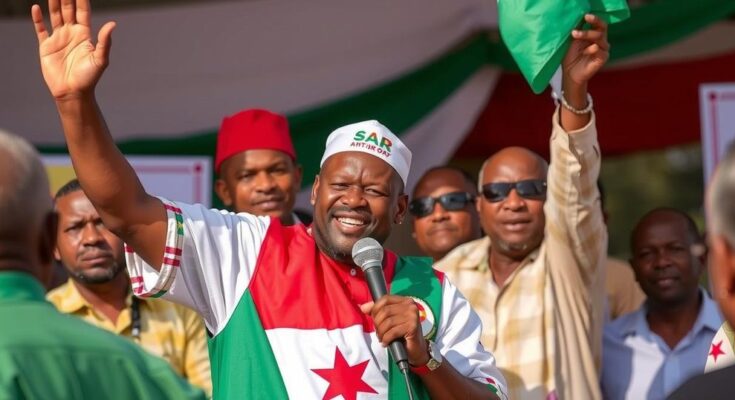Chad’s ruling MPS, led by President Mahamat Idriss Deby, won the majority in a contested parliamentary election that was boycotted by opposition parties citing lack of transparency. The ruling party secured 124 seats, despite criticisms, while Deby continues to navigate complex political and foreign relations following the death of his father, the former president.
The recent parliamentary elections in Chad yielded a significant victory for the ruling Patriotic Salvation Movement (MPS) led by President Mahamat Idriss Deby, who secured 124 out of 188 seats in the National Assembly. However, the election was marked by a boycott from opposition parties, which they claimed was due to a lack of transparency and fairness. Despite this, the government has characterized the election as a critical step towards consolidating democracy in the nation, with 51.56% of eligible voters reportedly participating.
Opposition leaders, including Succes Masra of the Transformateurs party, expressed skepticism regarding the legitimacy of the electoral process, asserting that the ruling party would manipulate the outcome. The National Elections Management Agency (ANGE) has advised that 38 political groupings will hold representation in the assembly, though details on how seats were allocated among non-MPS parties remain unspecified.
President Deby ascended to power following the death of his father, who had governed for thirty years, during a conflict with insurgents in 2021. Since his election, Deby has made notable shifts in foreign policy, terminating military agreements with France and expressing intentions to withdraw from a regional security force, actions which reflect a growing alignment with Russia, similar to trends observed in neighboring states such as Mali and Niger. Meanwhile, reports indicated that Chadian security forces thwarted a recent attack described by the government as an attempt at destabilization.
Chad has experienced significant political tumult in recent years, especially following the death of long-time leader Idriss Deby in 2021. His son, Mahamat Idriss Deby, declared himself interim leader and has since sought to establish his legitimacy through elections while facing substantial opposition claims of unfair practices. The landscape in Chad is marked by a contentious relationship with former colonial power France, and recent shifts in alliances have become evident as Deby navigates post-colonial foreign policy.
In conclusion, the parliamentary elections in Chad have underscored the complexities of its political landscape, especially in light of the ruling MPS’s victory amid allegations of unfair practices. The government’s assertion of a step toward democratization remains contested by opposition parties that argue for a more transparent political process. Moreover, the implications of Deby’s shift in foreign relations signal a broader regional trend towards distancing from French influence and an increased openness toward new partnerships.
Original Source: www.dw.com




